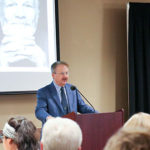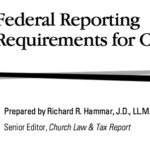Evangelical progressive activist Jim Wallis believes the United States is ripe for another socially transforming spiritual awakening. But as Christians become energized to change the world, they need to avoid the temptation to politicize the gospel, he warns.
In The Great Awakening: Reviving Faith & Politics in a Post-Religious Right America, Wallis outlines seven guiding principles for Christians as they seek to bring about societal change:
• God hates injustice. “The injustice of this world cries out to heaven, and God gets angry over it,” Wallis writes. “When we do, too, it is a sign of the image of God in us.”
|
Jim Walis
|
• The kingdom of God is a new order. Conversion is more than a “private religious experience,” Wallis writes. It is “the prerequisite for joining a new and very public movement”—God’s kingdom. The call to follow Christ “is an invitation to a whole new form and way of living, a transformation as radical as a caterpillar becoming a butterfly. It is far more than a call to a new inner life, or a rescue operation for heaven. It is an announcement of a new order of life that is intended to change everything about the world, and us with it.”
• The church is an alternative community. The church should create “a countercultural community living by different values than the surrounding society and providing a real evangelistic model of the healthier and more human way of life that the gospel offers,” Wallis emphasizes. “The church must therefore offer an alternative view of the world, an alternative narrative of cultural values, an alternative model for human existence and an alternative vision for politics.”
• The kingdom of God transforms the world by addressing specific injustice. “Rather than seeking to construct perfect social orders, which are impossible, we should instead seek concrete reforms of the actual social situations and circumstances in which the church finds itself,” Wallis writes. For instance, the Nov. 10-12 Dallas-area Justice Revival Wallis helped organize challenges churches to reach two tangible goals—involve at least 200 churches in creating 25 partnerships with public schools and advocate for 700 new permanent housing units for the homeless.
• The church is the conscience of the state, holding it accountable for upholding justice and restraining violence. The Bible teaches the state should protect the innocent, punish the guilty and protect the rule of law, Wallis notes. But the church should insist the government exercise its use of force only within clear and reasonable boundaries. “Although it is unrealistic to expect nation-states not to use force to protect their citizens and uphold the law, we can insist that governments seek to resolve conflicts with the least violence possible.”
• Take a global perspective. Christians’ primary loyalty should be to the kingdom of God; loyalty to the nation in which one is a citizen is secondary, Wallis insists. “Nationalism doesn’t go well with the kingdom of God. … To take a global perspective on politics, to value other countries’ interests as much as our own, and, perhaps most critically, to count all the world’s children equally as important as our own—all will significantly alter our political views.”
• Seek the common good. Hebrew prophets proclaimed a vision of “shalom”—peace and wholeness—and urged their fellow Jews to “seek the welfare of the city” where they lived, even as exiles. “The idea of the common good is a direct challenge to the rampant individualism that shapes our society in every way,” Wallis writes. “The common good begins with respect for the individual, but places each person in the context of his or her social relations.”
Sign up for our weekly edition and get all our headlines in your inbox on Thursdays














We seek to connect God’s story and God’s people around the world. To learn more about God’s story, click here.
Send comments and feedback to Eric Black, our editor. For comments to be published, please specify “letter to the editor.” Maximum length for publication is 300 words.